Table of Contents
A post pregnancy nutrition plan should focus on balanced meals and adequate hydration. Essential nutrients like iron, calcium, and protein are key for recovery and breastfeeding.
Navigating the world of postpartum nutrition can be overwhelming for new mothers seeking to regain their strength and provide the best care for their newborns. After childbirth, a woman’s body requires a mix of macronutrients and vitamins to heal and replenish energy levels.
A well-structured nutrition plan is crucial for those who are breastfeeding, as it affects the quality of breast milk and, by extension, the baby’s health. It’s also vital for mothers not breastfeeding to focus on a nutrient-rich diet to support their recovery. The right diet helps in managing weight, boosting mood, and improving overall well-being. By adhering to dietary recommendations that include a variety of fruits, vegetables, lean proteins, whole grains, and healthy fats, postpartum mothers can effectively support their body’s healing process and maintain robust health during this demanding phase.
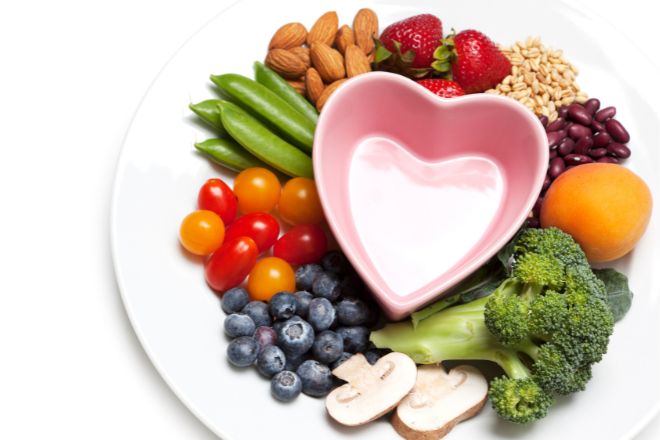
Importance Of Post-pregnancy Nutrition Plan
Post pregnancy nutrition plan is crucial for new moms. It helps the body recover and supports baby care. Good nutrition speeds up healing and boosts energy. Let’s explore why it’s so important.
Nutritional Needs After Childbirth
After giving birth, a mom’s body needs extra care. Nutrition is key for recovery. Here’s what’s needed:
- Protein – aids in tissue repair.
- Calcium – strengthens bones.
- Iron – combats fatigue by improving blood health.
- Vitamins – especially A, C, and E for skin and immune health.
Eating a variety of foods ensures these needs are met. Think colorful fruits, vegetables, lean meats, and whole grains. Don’t forget water! Hydration is essential.
Impact On Recovery And Healing
Nutrition greatly impacts healing after childbirth. A balanced diet:
- Speeds up healing of tissues and the uterus.
- Reduces infection risk by boosting the immune system.
- Helps with weight management, gradually bringing the body back to pre-pregnancy weight.
Focus on whole foods and avoid processed snacks. This strategy supports overall health and recovery.
What Do Moms Need After Pregnancy?
Post-pregnancy, moms need a mix of nutrients to recover and nourish their baby, if breastfeeding. Key components include:
| Nutrient | Reason |
|---|---|
| Omega-3 Fatty Acids | Supports brain health in moms and babies. |
| Fiber | Improves digestion and prevents constipation. |
| Iron | Essential for energy levels and to avoid anemia. |
| Calcium | Important for bone health. |
Include foods like salmon, leafy greens, nuts, and dairy. These offer the right mix for post-pregnancy health.
Key Nutrients For Post-pregnancy Recovery
After having a baby, a mother’s body needs powerful nutrients to heal and recover. A well-planned post pregnancy nutrition plan is key. It helps with energy levels and supports the body’s repair process. Let’s dive into the essential nutrients that aid post-pregnancy recovery.
Essential Vitamins And Minerals
Post-pregnancy, a mother’s body requires specific vitamins and minerals to bounce back. These include:
- Calcium: Crucial for bone health, especially for breastfeeding moms.
- Vitamin D: Aids calcium absorption and boosts the immune system.
- Vitamin C: Helps with wound healing and is an antioxidant.
- B Vitamins: Important for energy production and combating fatigue.
- Iron: Essential for replacing blood loss and preventing anemia.
These nutrients can be found in a variety of foods. Here’s a table outlining sources for each:
| Nutrient | Food Sources |
|---|---|
| Calcium | Dairy, leafy greens, tofu |
| Vitamin D | Fatty fish, eggs, fortified foods |
| Vitamin C | Citrus fruits, strawberries, peppers |
| B Vitamins | Whole grains, nuts, seeds |
| Iron | Red meat, beans, fortified cereals |
Protein And Iron Intake
Protein and iron are vital after pregnancy. They help repair tissues and produce new cells. Here are the key points:
- Protein: Needed for muscle repair and growth. It also helps in breast milk production.
- Iron: Supports the making of new blood cells and helps prevent postpartum anemia.
Aim for a mix of protein-rich foods like:
- Chicken
- Fish
- Beans
- Nuts
For iron, good choices include:
- Lean red meat
- Dark leafy greens
- Lentils
Balance is key, so include a variety of these foods in your diet.
What Is The Nutritional Care For Postpartum?
Proper nutritional care after childbirth is not just about eating. It’s a holistic approach that includes:
- Hydration: Drinking plenty of water is crucial for recovery and milk production.
- Small, frequent meals: Helps maintain energy levels and support metabolism.
- Whole foods: Focus on fruits, vegetables, whole grains, and lean proteins.
Remember, every mother’s body is different. It’s important to listen to your body’s signals. Seek advice from a healthcare provider or a dietitian for a personalized plan. This ensures you get the nutrition you need for a healthy recovery.
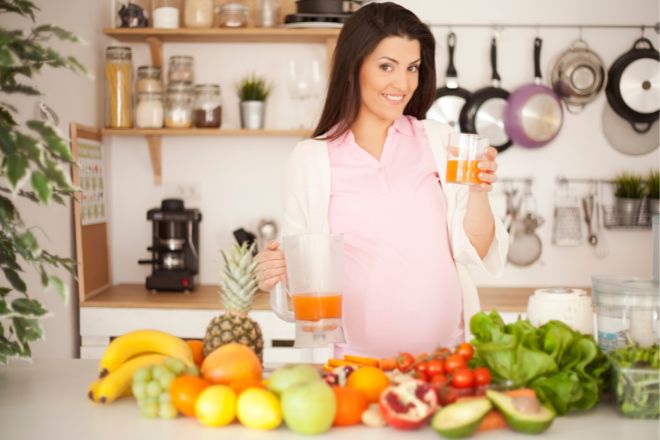
Creating A Balanced Meal Plan
After giving birth, a mother’s body needs a wealth of nutrients to heal and replenish. A balanced meal plan is key to getting these vital nutrients. It supports recovery and provides the energy needed for the demands of new motherhood. A well-rounded diet helps with weight management and offers nutrients for new moms that are essential for both her and her baby. Let’s explore how to create a meal plan that nurtures post-pregnancy health.
Incorporating Whole Foods
Whole foods are packed with natural vitamins, minerals, and antioxidants. They are crucial for a post pregnancy nutrition plan. Here’s how new moms can incorporate them into their diets:
- Eat a variety of fruits and vegetables for different vitamins and minerals.
- Choose whole grains like brown rice and quinoa for sustained energy.
- Include protein sources such as lean meats, beans, and lentils to aid tissue repair.
- Opt for healthy fats found in avocados, nuts, and olive oil for hormonal balance.
Meal Example Table:
| Meal Time | Whole Foods to Include |
|---|---|
| Breakfast | Oats, berries, and almonds |
| Lunch | Grilled chicken, quinoa salad, mixed greens |
| Dinner | Salmon, sweet potato, steamed broccoli |
| Snacks | Carrot sticks, hummus, fresh fruit |
Meal Timing And Frequency
Regular meal times and frequent snacks can stabilize blood sugar and energy levels. Here’s what new moms should aim for:
- Three main meals and two to three snacks daily.
- Don’t skip meals to ensure a steady supply of nutrients.
- Snacking on nutrient-dense foods like nuts and yogurt is great between meals.
Creating a schedule helps maintain this routine. For example, plan to eat breakfast at 8 AM, a snack at 10:30 AM, lunch at 1 PM, another snack at 3:30 PM, and dinner at 6 PM. This pattern supports a new mom’s metabolism and milk production if she is breastfeeding.
What Vitamins Are Good For Postpartum?
After childbirth, certain vitamins are particularly important:
- Vitamin C for skin healing and immune function.
- Vitamin D for mood regulation and bone health.
- B Vitamins, especially B12, for energy and brain function.
- Iron to replenish maternal stores and prevent anemia.
- Calcium for strong bones and teeth.
These vitamins are found in a balanced diet, but some moms might need supplements. It’s best to talk with a healthcare provider before starting any new vitamins. They can suggest specific types based on individual needs.
Hydration And Its Role In Recovery
After giving birth, your body begins a journey of healing and adjusting to not being pregnant. Post pregnancy Nutrition plan plays a key role in this process, with hydration standing out as a vital element. Drinking enough fluids helps your body recover and supports vital functions. It also aids in milk production for breastfeeding. Let’s dive into the specifics of how much water new moms should drink and why staying hydrated is essential.
Water Intake Recommendations
For new moms, getting enough water is crucial to recovery and overall well-being. Your body needs more fluids than usual, especially if you are breastfeeding. The following points outline the recommended water intake:
- Drink at least 8-12 cups of water daily.
- Include fluids from other sources like soups, fruits, and vegetables.
- Monitor urine color; pale yellow suggests good hydration.
Keep a water bottle nearby as a reminder to drink regularly. If you’re breastfeeding, you might need additional fluids to compensate for the milk production. Listen to your body’s thirst cues and respond promptly.
| Time of Day | Water Intake |
|---|---|
| Morning (Upon waking) | 1-2 cups |
| Mid-morning | 1-2 cups |
| Lunch | 2 cups |
| Afternoon | 1-2 cups |
| Evening (Dinner) | 2 cups |
| Before bed | 1 cup (optional) |
Importance Of Hydration
Hydration is more than just quenching thirst. It’s a building block for post-pregnancy recovery. Here’s why water is so important:
- Boosts Energy: Dehydration can lead to fatigue. Adequate water intake keeps energy levels up.
- Enhances Milk Production: Breastfeeding moms need more fluids to produce milk.
- Supports Body Functions: Water helps in the digestion and absorption of nutrients.
Staying hydrated also aids in weight management by helping you feel full, which can curb unnecessary snacking. It’s vital for skin elasticity, which is particularly important as your body adjusts post-pregnancy. Remember, if you feel thirsty, you’re already behind on your water intake. Make it a habit to sip on water throughout the day to ensure your body has what it needs to recover and thrive.
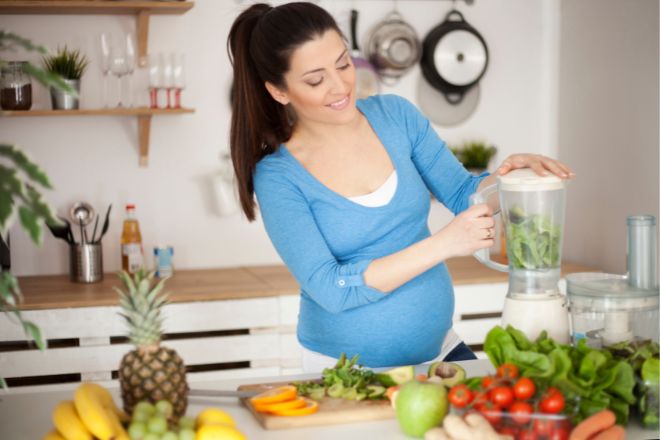
Addressing Common Post-pregnancy Concerns
After having a baby, a mother’s body needs nutritious foods to heal and regain strength. Addressing Common Post-Pregnancy Concerns like weight management and fatigue is crucial. A well-planned nutrition plan plays a vital role in this journey. Moms can tackle these challenges with the right diet and care.
Managing Postpartum Weight
Many new moms want to return to their pre-pregnancy weight. A healthy approach is key. It’s not just about cutting calories; it’s about eating foods that nourish. Here are tips for a balanced diet:
- Eat whole grains: They provide energy and help you feel full.
- Include protein: Lean meats, beans, and nuts aid muscle repair.
- Don’t skip meals: Regular meals keep your metabolism steady.
- Stay hydrated: Water is best for staying hydrated and helps control hunger.
Remember, weight loss should be gradual. Aim for a loss of about 1-2 pounds a week. Here’s a simple table for a balanced meal plan:
| Meal Time | Food Group | Example |
|---|---|---|
| Breakfast | Protein + Whole Grain | Scrambled eggs on whole-wheat toast |
| Lunch | Protein + Veg + Whole Grain | Grilled chicken salad with quinoa |
| Dinner | Protein + Veg + Healthy Fat | Salmon with steamed broccoli and avocado |
Dealing With Fatigue
New moms often feel tired. A baby’s needs can make it hard to get enough sleep. Good nutrition can help. Here are foods to eat for more energy:
- Iron-rich foods: Prevent anemia and boost energy. Think spinach and lean red meat.
- Complex carbs: Foods like sweet potatoes release energy slowly.
- Small, frequent meals: Keep blood sugar levels stable.
Rest is also important. Try to sleep when your baby sleeps. Ask for help from family and friends. This can give you a chance to rest and recharge. Here’s a simple guide for energy-boosting snacks:
| Snack Time | Energy Booster | Example |
|---|---|---|
| Morning | Protein + Fruit | Greek yogurt with berries |
| Afternoon | Healthy Fat + Veg | Carrot sticks with hummus |
| Evening | Protein + Complex Carb | Almond butter on whole-grain crackers |
The Impact Of Nutrition On Breastfeeding
After giving birth, a mother’s body needs plenty of nutrients to recover and to provide for the newborn. Breastfeeding nutrition plays a critical role in this journey. What a mother eats can affect her milk supply and the health of her baby. Proper nutrition ensures the milk is rich in essential vitamins and minerals. A balanced diet supports the mother’s energy levels and can help fend off postpartum issues. Let’s explore some key foods that aid lactation and examine common allergens breastfeeding mothers might need to avoid.
Foods To Support Lactation
Post pregnancy nutrition plan is pivotal for mothers who breastfeed. Certain foods can boost milk production and enhance its quality. Here’s a guide to what can help:
- Oats: High in fiber and iron, oats are often hailed as a galactagogue, a substance that promotes lactation.
- Leafy Greens: Spinach and kale are packed with calcium, iron, and folate, vital for both mom and baby.
- Nuts and Seeds: Almonds and flaxseeds bring healthy fats and fiber to a nursing mother’s diet.
Besides these, hydration is paramount. Aiming for at least eight glasses of water daily is a good rule. Below is a table of foods and their key nutrients that support breastfeeding.
| Food | Key Nutrients |
|---|---|
| Salmon | Omega-3 fatty acids, Protein |
| Legumes | Protein, Iron |
| Yogurt | Calcium, Protein |
Potential Allergens To Avoid
While breastfeeding, some foods might cause allergies in babies. Signs include rashes, fussiness, or digestive issues. Here is a list of potential allergens:
- Cow’s Milk: Some babies are sensitive to cow’s milk protein.
- Soy: Similar to cow’s milk, soy can also cause allergies.
- Wheat: Gluten in wheat can be an issue for some infants.
Keep a food diary to track what you eat and how your baby reacts. If you suspect an allergy, consult a pediatrician before making dietary changes. Remember, breastfeeding nutrition is not just about avoiding allergens but also about including a variety of nutrients to support both you and your baby.
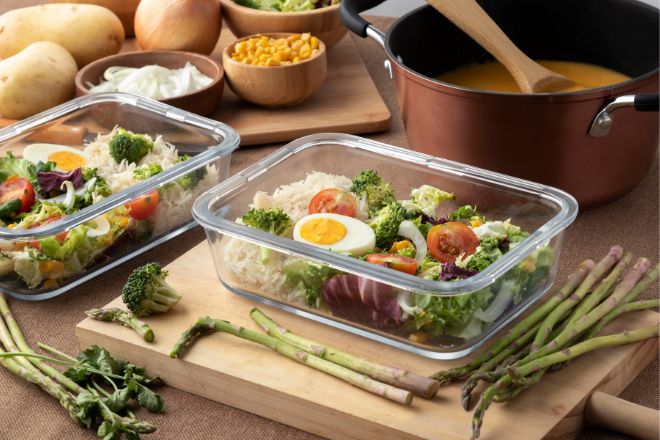
Meal Prepping And Time-saving Tips
After giving birth, new moms often feel overwhelmed with the demands of motherhood. Amidst the joy of welcoming a new family member, finding time for healthy eating after pregnancy can be challenging. Meal-prepping and time-saving strategies become essential. These tips help moms maintain a nutritious diet without spending hours in the kitchen. Let’s explore how to create a post pregnancy nutrition plan that is both efficient and beneficial.
Efficient Cooking Strategies
Establishing efficient cooking strategies is key to managing a healthy diet. With a newborn, time is precious. Here are some tips to help you cook smarter:
- Batch Cooking: Prepare and cook large portions of meals at once. Divide these into single servings and freeze them. This makes it easy to grab a meal when time is tight.
- One-Pot Wonders: Use one pot to cook your meal. This saves time on washing up and keeps cooking simple.
- Slow Cooker Magic: Utilize a slow cooker. It allows you to toss in ingredients in the morning and come home to a cooked meal.
- Pre-cut Veggies: Buy pre-cut vegetables or spend a little time prepping them after shopping. Store them in clear containers for easy access.
Planning is crucial. Start by creating a weekly menu. Next, compile a shopping list that aligns with your menu. Stick to it to avoid impulse buys. Below is a sample meal prep table for a week:
Add rows as necessary
| Day | Meal | Ingredients |
|---|---|---|
| Monday | Lentil Soup | Lentils, Carrots, Onion, Celery, Spices |
| Tuesday | Chicken Stir Fry | Chicken Breast, Mixed Veggies, Soy Sauce |
| Wednesday | Beef Chili | Ground Beef, Beans, Tomatoes, Chili Powder |
Healthy Snack Options
Snacking can be a major pitfall or a nutritional boon. For new moms, healthy snack options are essential. They provide energy and nutrients between meals. Here are a few ideas:
- Fruit Slices: Apple or pear slices are easy to eat one-handed. Pair them with a tablespoon of almond butter for added protein.
- Yogurt Parfaits: Layer Greek yogurt with berries and a sprinkle of granola. Prep these in jars for a quick, nutrient-packed snack.
- Nuts and Seeds: A handful of almonds or sunflower seeds deliver healthy fats and are easy to munch on.
- Whole Grain Toast: Top with avocado or cottage cheese for a satisfying mini-meal.
Keep these snacks in clear, easy-to-reach containers. Pre-portion them to avoid overeating. Remember, staying hydrated is also crucial. Keep a water bottle nearby and refill it throughout the day. These simple, wholesome snacks help maintain healthy eating after pregnancy and keep you fueled for the demands of new motherhood.
Seeking Professional Guidance
After having a baby, moms need to eat healthy foods. It helps them feel good and gives their babies what they need. But knowing what to eat can be hard. So, it’s smart to ask experts for help. They can make a food plan just for you.
Consulting A Registered Dietitian
A dietitian knows a lot about food and health. They can help new moms eat right. Here’s why seeing a dietitian is a good idea:
- They know a lot. Dietitians study food and health. They can give you good advice.
- Safe weight loss. They can help you get back to your pre-baby weight safely.
- Answer your questions. They can help if you’re confused about what to eat.
What they might ask you:
| Questions | Reasons |
|---|---|
| What foods do you like? | To make a plan you’ll enjoy. |
| Do you have allergies? | To keep you safe. |
| What’s your daily routine? | To fit the plan into your life. |
Importance Of Individualized Plans
Every mom is different. So, every mom needs her own food plan. Here’s why:
- Your body is unique. What works for one mom might not work for you.
- Your baby’s needs. Some babies might need more of certain nutrients.
- Your lifestyle. Your plan should fit your daily life.
Good plans include:
- Healthy snacks.
- Meals with lots of nutrients.
- Enough water.
This plan helps moms and babies stay healthy. It makes sure they get everything they need. And it’s easy to follow, even on busy days.
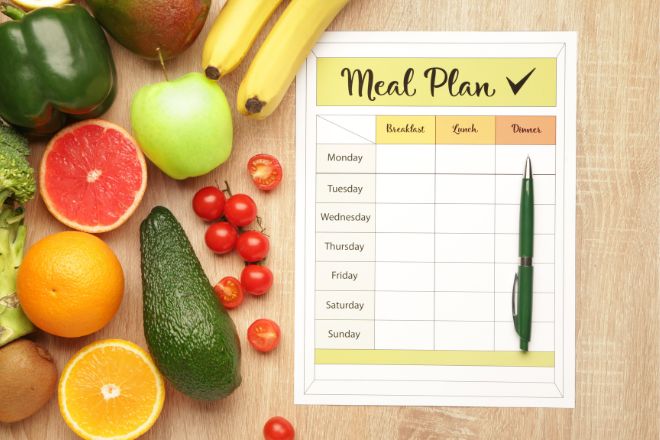
Understanding Post-pregnancy Supplements
After childbirth, a mother’s body needs essential nutrients to recover and produce nourishing milk for the baby. Understanding post-pregnancy supplements is key to this phase. They fill nutritional gaps and support overall health. Let’s explore the supplements that are often recommended for new moms.
Commonly Recommended Supplements
During post-pregnancy, the body continues to require additional support. Here are some supplements that health professionals commonly suggest:
- Iron: To prevent anemia, especially if you experienced significant blood loss during delivery.
- Calcium: Vital for bone health and to support your baby’s needs if breastfeeding.
- Vitamin B12: Crucial for brain function and energy levels, especially for those on a vegetarian or vegan diet.
Let’s look at these in a table for a quick reference:
| Supplement | Benefits | Daily Dosage |
|---|---|---|
| Iron | Boosts hemoglobin, prevents anemia | 18 mg |
| Calcium | Strengthens bones, supports baby’s growth | 1000 mg |
| Vitamin B12 | Improves energy, supports the nervous system | 2.8 mcg |
Considerations For Vitamin D And Omega-3
Two nutrients that deserve special attention are Vitamin D and Omega-3 fatty acids. They play a crucial role in your and your baby’s health.
- Vitamin D: Important for immune function and bone health. Sunshine is a natural source, but supplements ensure adequate levels.
- Omega-3s: These support brain development in babies and may improve mood in mothers.
A balanced intake of these nutrients is essential. Here’s a guideline:
| Nutrient | Key Benefits | Recommended Intake |
|---|---|---|
| Vitamin D | Supports bones, boosts immunity | 600 IU |
| Omega-3 Fatty Acids | Enhances brain health, reduces inflammation | 200-300 mg DHA |
What Are The Best Post-Pregnancy Supplements?
Selecting the best post-pregnancy supplements means focusing on quality and necessity. Here are top picks for new moms:
- Prenatal Vitamins: Continue them postpartum for an all-around nutrient boost.
- Probiotics: For gut health and potentially improving baby’s microbiota through breast milk.
- Choline: Supports brain development and liver function.
Remember, the ideal supplement plan varies per individual. Consult a healthcare provider for personalized advice. Here’s a snapshot of top supplements:
| Supplement | Why It’s Best | Dosage |
|---|---|---|
| Prenatal Vitamins | Comprehensive nutritional support | As per label |
| Probiotics | Boosts digestive and immune health | 1-10 billion CFUs |
| Choline | Essential for baby’s brain development | 550 mg |
Long-term Health And Wellness
After childbirth, a mother’s body requires the right nutrition to heal and recover. In addition to helping you feel better, a solid post pregnancy nutrition plan sets the stage for long-term health and wellness. This plan is not just about losing the baby weight; it’s about building a foundation that supports your body through the demands of motherhood. Let’s explore how to sustain nutritional habits, incorporate physical activity, and choose the best prenatal vitamins for postpartum recovery.
Sustaining Nutritional Habits
Building sustainable nutritional habits is key to long-term health. After pregnancy, your body needs time to adjust and heal. Here are some tips to keep your nutrition on track:
- Eat a variety of fruits and vegetables to get essential vitamins and minerals.
- Choose whole grains over processed foods for lasting energy.
- Include lean protein sources like chicken, fish, beans, and lentils to aid tissue repair.
- Stay hydrated by drinking plenty of water throughout the day.
Remember, it’s not about dieting; it’s about creating a balanced plate at every meal to nourish your body. Here’s a simple guide to follow:
| Food Group | Portion Size |
|---|---|
| Fruits | 2 cups |
| Vegetables | 2.5 cups |
| Grains | 6 ounces |
| Proteins | 5.5 ounces |
| Dairy | 3 cups |
Incorporating Physical Activity
Exercise is just as important as diet when it comes to post-pregnancy health. It helps strengthen your body, boosts your mood, and can even improve sleep. Start with gentle activities and listen to your body. Here are some ideas to get moving:
- Take a walk with your baby in the stroller for fresh air and sunshine.
- Try postnatal yoga to improve flexibility and reduce stress.
- Pelvic floor exercises help regain strength in key areas.
- Swimming is low-impact and good for overall fitness.
Set realistic goals and make exercise a regular part of your routine. Aim for at least 150 minutes of moderate-intensity activity each week. Break it down into short, manageable sessions to fit into your new schedule.
What Is The Best Prenatal Vitamin For Postpartum?
Choosing the best prenatal vitamin for postpartum recovery is crucial. The right vitamin supports your body as it heals and provides nutrients for breastfeeding. Look for a prenatal vitamin that includes:
- Folic acid to support cell regeneration.
- Iron to replenish blood supply and prevent anemia.
- Calcium and vitamin D for bone health.
- DHA to aid in your baby’s brain development.
While many brands are available, consult with your healthcare provider to find one that fits your specific needs. A high-quality prenatal vitamin should contain the nutrients you need without excessive filler ingredients. Remember, supplements are there to complement a balanced diet, not replace it.
What Is The Best Diet After Pregnancy?
The best diet after pregnancy includes balanced meals rich in fruits, vegetables, whole grains, lean proteins, and healthy fats. Prioritize hydration and consider breastfeeding needs by increasing calorie intake slightly. Always consult a healthcare provider for personalized advice.
What Is The Nutritional Care For Postpartum?
Postpartum nutritional care involves balanced meals rich in vitamins, proteins, and fibers. Prioritize hydration and regular, nutrient-dense snacks. Consider iron-rich foods to replenish blood loss and calcium for bone health. Consult a dietitian for personalized advice.
What Foods To Avoid Post Partum?
Postpartum, avoid alcohol, caffeine, and spicy foods. Limit processed snacks and high-mercury fish. Choose easy-to-digest, nutrient-rich options instead.
What Are Good Postpartum Meals?
Good postpartum meals include lean proteins, whole grains, fruits, and vegetables. They should be rich in iron, calcium, and vitamins. Opt for easy-to-digest foods like soups, stews, and smoothies. Stay hydrated with water and milk. Avoid heavy, spicy, and processed foods to promote healing and energy.
What Foods Support Postpartum Recovery?
A balanced diet with whole grains, lean proteins, healthy fats, and plenty of fruits and vegetables aids postpartum recovery.
Conclusion
Embracing a healthy post pregnancy nutrition plan is vital for new mothers. It aids in recovery and ensures well-being. Remember, every mother’s journey is unique, and so are nutritional needs. Consulting a nutritionist can personalize your diet, optimizing health for you and your baby.
Start this beautiful journey with the right nutrients by your side.
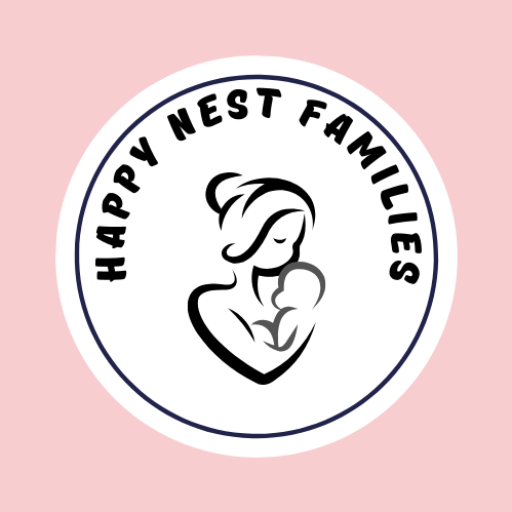



Leave a Reply
View Comments